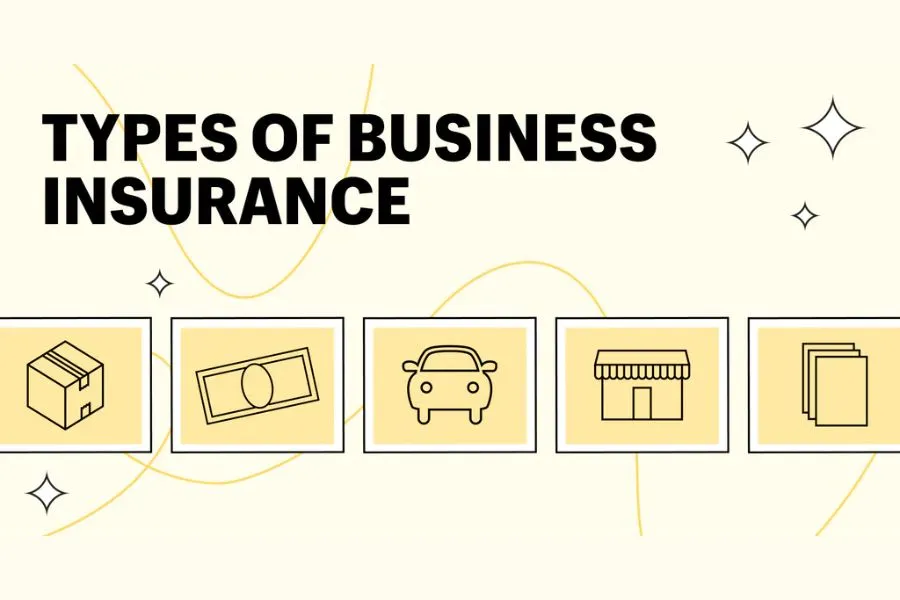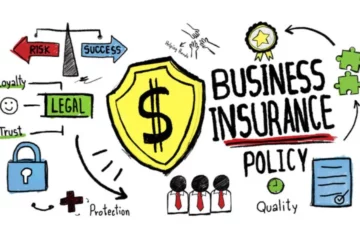The Top 5 Types of Business Insurance Every Entrepreneur Should Consider

Types of Business Insurance
Entrepreneurship is a challenging yet rewarding journey that requires immense dedication, hard work, and perseverance. As a business owner, you are responsible for your venture’s success, but you’re also accountable for its risks. Unexpected events such as natural disasters, accidents, or lawsuits can cripple your operations and cause severe financial losses. To protect your business from such eventualities, you need to invest in business insurance. Business insurance is a crucial investment that can provide financial support in case of unforeseen circumstances. In this article, we’ll explore the top five types of business insurance every entrepreneur should consider.
Why do entrepreneurs need business insurance?
As a business owner, you face various risks that could harm your operations. Depending on the nature of your business, these risks could be physical or financial. For instance, if you own a restaurant, you face the risk of food poisoning, slip-and-fall accidents, or kitchen fires. If you’re a consultant or an accountant, you face the risk of a client suing you for professional negligence. Additionally, if you have employees, you face the risk of workplace injuries, illnesses, or discrimination claims. These risks can be costly, both financially and reputation-wise. Business insurance can help mitigate these risks, protect your assets, and provide financial support in case of unexpected events.
Types of business insurance
There are several types of business insurance available, each covering different aspects of your business. The five most common types of business insurance every entrepreneur should consider are:
1. General Liability Insurance
General liability insurance is the most basic and essential type of business insurance. It covers your business against third-party lawsuits for bodily injury, property damage, and advertising injury. For instance, if a customer slips and falls in your store, general liability insurance can cover the medical expenses and legal fees if they sue you. It can also cover the costs of repairing or replacing damaged property. General liability insurance is crucial for all businesses, regardless of their size or industry.
2. Property Insurance
Property insurance covers the physical assets of your business, such as buildings, equipment, inventory, and furniture. It protects your business against losses caused by fire, theft, vandalism, or natural disasters. For instance, if your office is damaged in a hurricane, property insurance can cover the cost of repairing or rebuilding it. Property insurance is essential for businesses that own or lease physical properties and have valuable assets.
3. Professional Liability Insurance
Professional liability insurance, also known as errors and omissions insurance, protects your business against lawsuits for professional negligence, errors, or omissions. It covers the costs of defending yourself in court and paying damages if you’re found liable for a client’s financial losses. For instance, if a client sues you for providing incorrect financial advice that resulted in losses, professional liability insurance can cover the legal fees and settlement costs. Professional liability insurance is crucial for businesses that provide professional services, such as consultants, lawyers, accountants, and architects.
4. Workers’ Compensation Insurance
Workers’ compensation insurance covers your employees’ medical expenses, lost wages, and rehabilitation costs if they’re injured or become ill while on the job. It also provides death benefits to their families if they die. Workers’ compensation insurance is mandatory in most states, and failing to have it can result in hefty fines and legal penalties. Workers’ compensation insurance is crucial for businesses that have employees and face the risk of workplace injuries or illnesses.
5. Cyber Liability Insurance
Cyber liability insurance covers your business against losses caused by cyber attacks, data breaches, or cyber crimes. It can cover the costs of notifying affected customers, hiring IT experts to investigate the breach, and defending yourself in court if you’re sued. Cyber liability insurance is crucial for businesses that store sensitive customer data, such as credit card numbers, social security numbers, or medical records. It’s also essential for businesses that rely on technology to operate, such as e-commerce stores or software companies.
How to determine which insurance types are right for your business
Choosing the right type of business insurance can be overwhelming, but it’s essential to evaluate your risks and needs carefully. Here are some steps to help you determine which insurance types are right for your business:
- Evaluate your risks: Identify the potential risks that your business faces, such as accidents, lawsuits, natural disasters, or data breaches.
- Assess your needs: Determine the level of coverage you need for each risk based on your business size, industry, assets, and operations.
- Compare policies: Shop around and compare policies from different insurance providers to find the best coverage and rates that fit your needs and budget.
- Consult with an expert: Consult with an insurance broker or agent who can provide professional advice and help you navigate the complex insurance market.
Where to buy business insurance
You can buy business insurance from various sources, such as insurance brokers, agents, or online marketplaces. Here are some options to consider:
- Insurance brokers: Insurance brokers are independent professionals who can help you find the right insurance coverage from different providers. They can provide expert advice and guidance and negotiate the best rates on your behalf.
- Insurance agents: Insurance agents work for specific insurance companies and can offer their policies. They can provide information about their products and help you choose the right coverage.
- Online marketplaces: Online marketplaces such as CoverWallet, Embroker, or Policygenius offer a variety of insurance policies from different providers. You can compare rates and coverage options and buy insurance online.
Conclusion
Business insurance is a crucial investment that can protect your venture from unexpected events and provide financial support in case of losses. As an entrepreneur, you need to evaluate your risks carefully and choose the right type of coverage to safeguard your business. General liability, property, professional liability, workers’ compensation, and cyber liability insurance are the top five types of business insurance that every entrepreneur should consider. By investing in business insurance, you can focus on growing your business and achieving your goals while having peace of mind that you’re protected against the unexpected.








